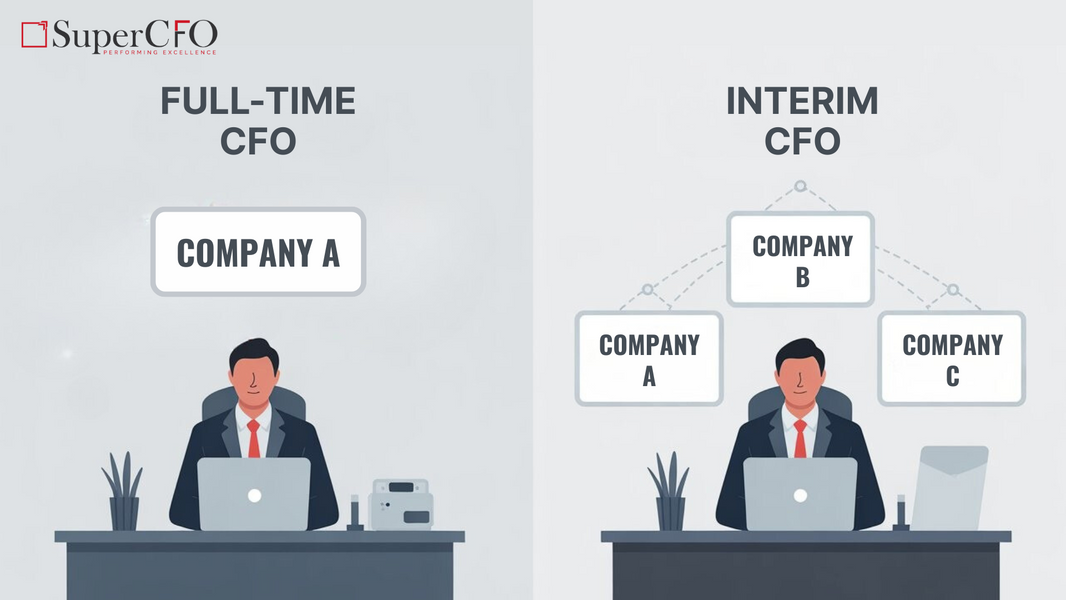How AI Enhances the Role of a Virtual CFO in Financial Management
In recent years, the role of the Virtual CFO has grown significantly. More businesses are turning to these financial leaders for expert guidance without the cost of a full-time executive. At the same time, artificial intelligence (AI) is transforming how financial tasks are handled. Combining the expertise of a Virtual CFO with AI tools offers a powerful advantage for companies looking to improve their financial management.
A Virtual CFO provides strategic financial leadership remotely, helping businesses with budgeting, forecasting, and financial decision-making. With AI in financial management, many of these tasks are now faster, more accurate, and more insightful. This article explores how AI enhances the role of a Virtual CFO by improving business financial insights and strengthening financial strategy development.
The Role of a Virtual CFO Today
What is a Virtual CFO?
A Virtual CFO acts as a chief financial officer for a company but works remotely or on a part-time basis. They take on key responsibilities like overseeing cash flow, managing budgets, handling financial reporting, and advising on business growth strategies. This flexible role is ideal for small to medium-sized businesses that may not need or afford a full-time CFO.
Traditional Challenges Faced by Virtual CFOs
Virtual CFOs often face hurdles like limited access to real-time financial data. Without up-to-date information, it’s tough to make accurate decisions quickly. Additionally, many financial processes remain manual, consuming valuable time that could be spent on strategy and planning.
Understanding AI in Financial Management
What AI Brings to Financial Management
AI brings automation and smart data analysis to financial management. Routine tasks such as data entry and report generation are automated, freeing Virtual CFOs to focus on higher-level work. Beyond automation, AI enables advanced analytics, uncovering patterns and trends that humans might miss.
AI-Driven Tools Commonly Used by Virtual CFOs
Virtual CFOs leverage AI-powered software like adaptive budgeting tools, predictive analytics platforms, and AI-driven reporting systems. Examples include cloud-based accounting systems integrated with AI algorithms and platforms that use machine learning to forecast financial outcomes.
How AI Improves Business Financial Insights
Real-Time Data Processing
One of the biggest advantages of AI is its ability to process large financial data sets instantly. This means Virtual CFOs get real-time updates on cash flow, expenses, and revenue. Faster and more accurate financial reporting allows businesses to respond quickly to market changes.
Predictive Analytics for Better Decision-Making
AI-driven predictive analytics help Virtual CFOs foresee future financial trends and risks. By analyzing historical data along with current market conditions, AI tools can forecast sales, expenses, and cash flow, empowering better decisions and reducing surprises.
AI’s Impact on Financial Strategy Development
Customized Financial Strategies Powered by AI
With AI-generated insights, Virtual CFOs can create tailored financial strategies that address the unique needs of each business. AI highlights opportunities and potential pitfalls, allowing CFOs to craft plans grounded in data rather than guesswork.
Enhancing Scenario Planning and Budgeting
AI supports scenario modeling, letting Virtual CFOs test various financial outcomes under different conditions. This makes budgeting more flexible and realistic, helping businesses prepare for uncertainties and make informed adjustments.
Benefits of Combining Virtual CFO Expertise with AI
Increased Efficiency and Scalability
By automating routine tasks and speeding up analysis, AI lets Virtual CFOs handle more complex projects efficiently. This scalability means they can support growing businesses without compromising quality.
Improved Accuracy and Reduced Errors
AI reduces human error by validating data and highlighting discrepancies. This accuracy boost means better financial reports and fewer costly mistakes.
Strategic Leadership Backed by Data
With AI providing deep financial insights, Virtual CFOs can offer stronger strategic leadership. Data-backed recommendations help businesses make confident long-term decisions.
Real-World Applications and Success Stories
Many businesses have seen success by combining Virtual CFO services with AI. For instance, a mid-sized e-commerce company improved its cash flow forecasting accuracy by 30% using AI tools recommended by their Virtual CFO. Another startup used AI-driven scenario planning to secure additional funding by presenting detailed, data-supported financial projections.
Conclusion
AI is transforming how Virtual CFOs operate, making financial management faster, more accurate, and deeply insightful. By embracing AI-powered solutions, businesses can unlock smarter financial strategy development and stronger leadership. If you're looking to grow your company with expert financial guidance, consider a Virtual CFO supported by AI to stay competitive and prepared for the future.










